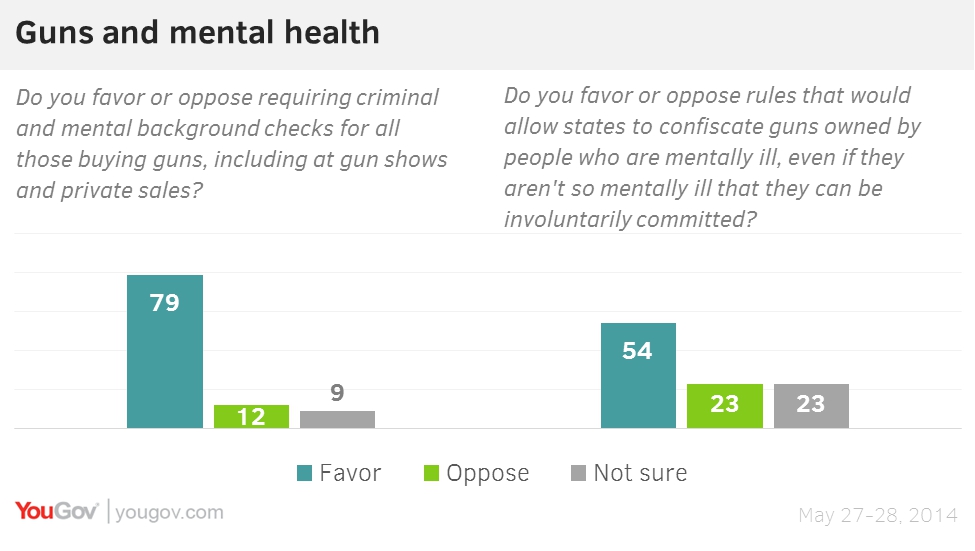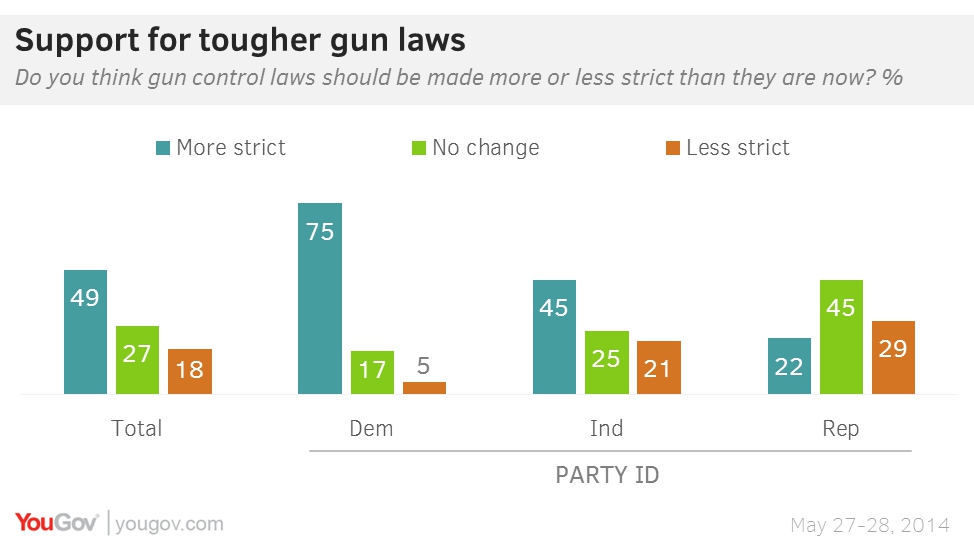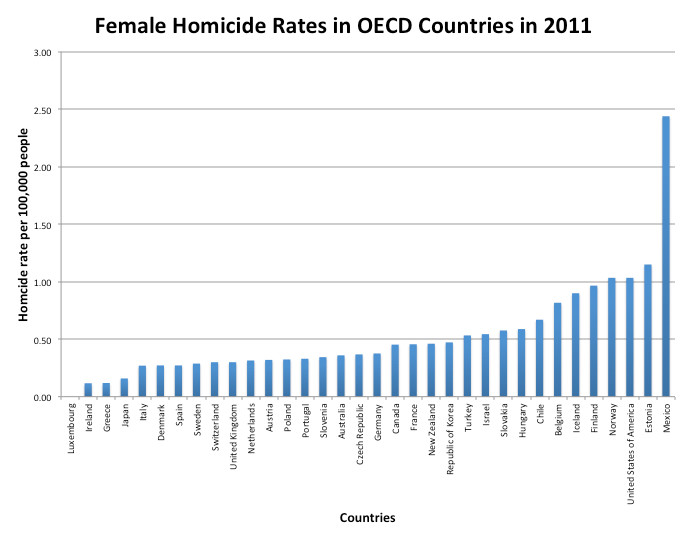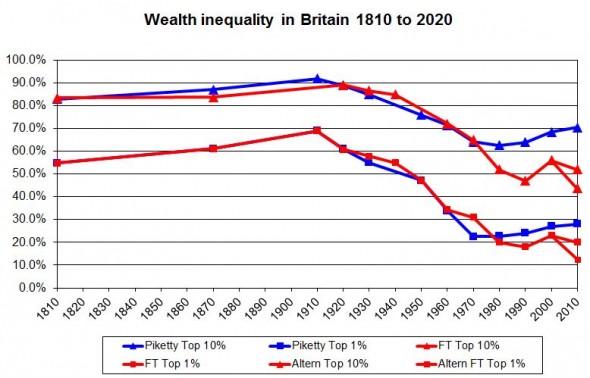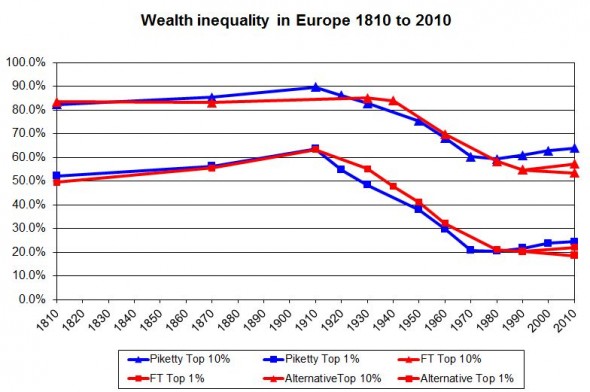Media Matters defense of the recent Moms Demand Action is available here.
On May 24th, Shannon Watts, the president of Moms Demand Action, put out a tweet concerning violence against women in the US compared to other countries. The impression surely created was that the US is the worst country in the world in terms of violence against women. On two separate times I tweeted her back to ask her where she got the data for this claim (most recently asking about it two days ago). In neither case did I get a response.

In a piece that I published today at National Review Online, I pointed out that the "Data from the United Nations Office of Drugs and Crime (UNODC) allows you to break down murders either by the sex of the victim or by whether firearms are used, but it doesn’t allow users to identify both these categories simultaneously." For many years the World Health Organization also hasn't provided such data. While Moms Demand Action never responded to my questions about their data source, it turns out that they were pointing to homicide data from 1994 to 1999, not recent data. Just as an aside, the US homicide rate was about 60 percent higher over that period than it was last year.
Now let's get to the main points.
1) "Lott further misled by claiming that the proper comparison between countries would involve examining 'homicide rates'"
The "84% of female firearm homicides in 25 countries are in US" claim compares the total number of homicides for women without adjusting for population. To be included in their list of countries (p. 1): "We used data from only those high-income countries that had populations over 2 million." By contrast, in 1995, the US population was about 265 million people. As I pointed out in my piece: "Moms Demand Action’s claim doesn’t make much sense anyway; they shouldn’t compare the raw number of homicides, since that doesn’t account for differences between countries in population size. Comparing homicide rates makes a lot more sense. Map 1.6 from the UNODC shows that in 2012 the U.S. had one of the world’s lower rates of homicide against females." As far as I can tell, Media Matters never explains why it is misleading to compare rates than the total number of homicides.
For all the countries in the world the United Nations provides this Figure (click on it to make it larger). Not only is the US in the lowest of the six grouping of countries provided by the UN, but within this homicide rate of 0 to 3 per 100,000 women, the rate for the US is about 1 per 100,000 women.
Media Matters claims: "Lott's purpose was to distract from violence perpetrated against women." But as far as I can tell, I was looking at total homicides committed against women. I am not sure how that distracts from the issue of "violence perpetrated against women."
2) Homicide rates in developed countries.
As to the study in the Journal of the American Medical Women's Association, the normal way to break these comparisons down is by developed versus non developed countries. In this figure are the female homicide rates for developed countries in 2011 using the UNODC data. If one cares about total homicides and not how the homicides were committed, you can see the numbers here. By the way, looking at homicides and not murders biases the numbers somewhat against the US because of the inclusion of justifiable homicides.
(Click on figure to make it bigger.)
3) "The fact is the murder rate in the United States is much higher compared to other high-income nations, with the discrepancy being largely driven by gun murders."
For a discussion on this point please see these two posts
here and here.
4) "[m]ore than twice as many women are killed with a gun used by their husbands or intimate acquaintances than are murdered by strangers using guns, knives, or any other means."
What isn't explained here is that intimate acquaintances include crime involving prostitutes and johns or pimps. On the more general point, the real risk factor is whether the attacker has a violent criminal record, not whether a gun is owned in the home.
UPDATE: Possibly some context is needed here. One of the points of Moms Demand Action's claim is to make people fearful of guns in the home. The response that I made is that many of these deaths are not involving events between what most people are thinking about regarding "their husbands or intimate acquaintances." Being a prostitute is simply a more dangerous occupation than most women engage in, and thus women can reduce their risks by not engaging in this type of work.
5) Further note on the the Journal of the American Medical Women's Association study.
The study uses the percentage of suicides committed with guns as their proxy for gun ownership rates. Unfortunately, since the method of suicide varies greatly by gender and other social characteristics, the measure is more a proxy for demographics than it is a measure of gun ownership rates.
Since Media Matters regularly rewrites their pieces after I have posted my comments, I have been taking screen shots of their original posts (click on screen shot to enlarge).
Labels: Bloomberg, media matters Lott

